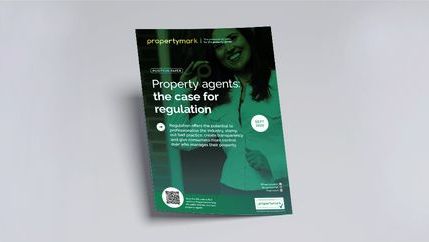
Why is regulation needed?
Lord Best warned that billions of pounds of client money and millions of renters’ lives are affected by agents’ performance. He argued that regulation is not only supported by renters and landlords, but by Propertymark and other sector bodies, stating that “those who would be regulated are as keen on regulation as those consumers who would be protected by it.”
Propertymark has championed the case for regulation for many years, in line with our members’ clear understanding that professionalism and accountability are essential to building trust with landlords and tenants. We worked with Lord Best as a member of The Regulation of Property Agents working group, which proposed a regulatory framework focused on estate agents in the UK and letting and managing agents in England, and we strongly believe regulation offers the potential to professionalise the industry, stamp out bad practice, create transparency and give consumers more control over who manages their property.
Property agents: the case for regulation
Regulation offers the potential to professionalise the industry, stamp out bad practice, create transparency and give consumers more control over who manages their property. Minimum qualification requirements and statutory Code of Practices to be adhered to by all letting and managing agents in England and sales agents across the UK should be introduced.
We hear you, but not yet
Responding to the debate, Baroness Taylor acknowledged the strength of feeling across the House and the urgent need to professionalise the sector. She confirmed that the UK Government had not ruled out action on regulation and referenced a Written Ministerial Statement from November 2024, which committed to revisiting the 2019 ROPA report.
She also noted that the Ministry for Housing, Communities and Local Government (MHCLG) intends to introduce minimum qualifications for managing agents of leasehold properties and freehold estates via the forthcoming Leasehold and Commonhold Reform Bill, which is due to be published in the second half of 2025. However, she stopped short of supporting the amendments outright, indicating only that the issue would be addressed in due course.
Continuing the campaign
This lack of a firm timetable is disappointing. Propertymark welcomes the recognition from the Lords that now is the time to act—and agrees that the Renters’ Rights Bill is a logical place to begin. While we understand the UK Government’s preference for a phased approach, we are concerned that delays risk undermining confidence in the lettings industry and increasing pressure on local authorities.
With leasehold reform expected to return to Parliament later this year, Propertymark is urging MHCLG to broaden its focus to include lettings. We will continue to work with ministers, officials, and Parliamentarians to ensure that the regulation of property agents remains firmly on the political agenda and that reform happens at pace.
Support for restrictions on ‘Airbnb-style’ conversions
Another amendment spearheaded by Best proposed a new legal requirement for planning permission before an assured or assured shorthold tenancy can be switched to a short-term letting, responding to mounting pressure in tourist hotspots where conversions from private rented sector (PRS) homes to short-term accommodation have reached critical proportions.
Propertymark has consistently raised concerns about the rapid growth of short-term lettings and its impact on housing supply, and we have previously called for mandatory registration, greater transparency, and planning restrictions to prevent the displacement of long-term tenants.
Amplifying agent voices
Before the debate, we briefed members of the Lords on the risk that periodic tenancies with minimal notice periods, as proposed in the Bill, could be exploited to create de facto short lets, and that existing regulatory and financial pressures—including new tax and EPC rules— could tempt more landlords to opt for short-term lets. Lord Truscott backed these concerns during the debate and called for action similar to measures taken in Wales, Scotland, and major European cities, where regulation of short lets is much tighter.
UK Government spokesperson, Baroness Taylor, reaffirmed the intention to regulate short-term lets via a national registration scheme, as set out in the Levelling-up and Regeneration Act 2023. However, she admitted the scheme remains in development. She also referenced the abolition of the furnished holiday lets tax regime from April 2025, which reduced financial incentives for landlords to favour short-term rentals.







